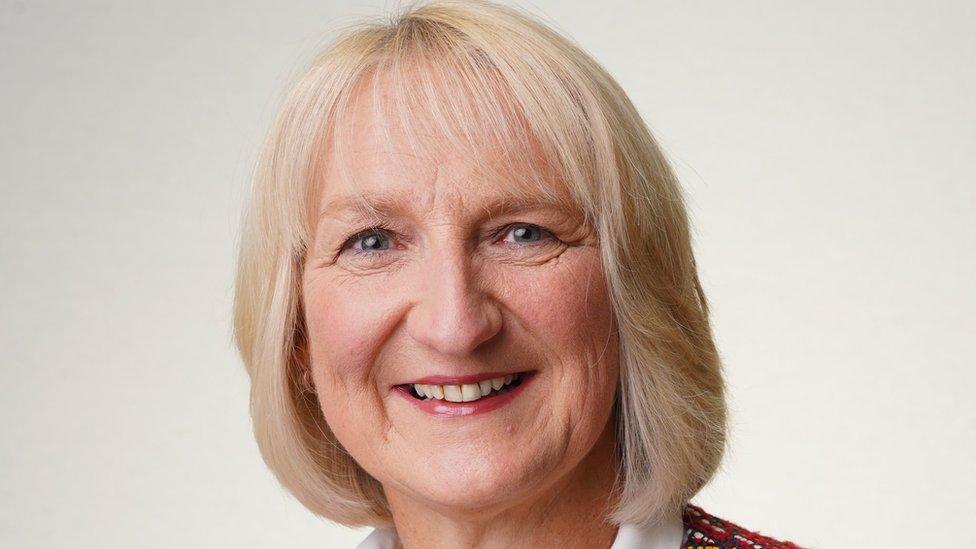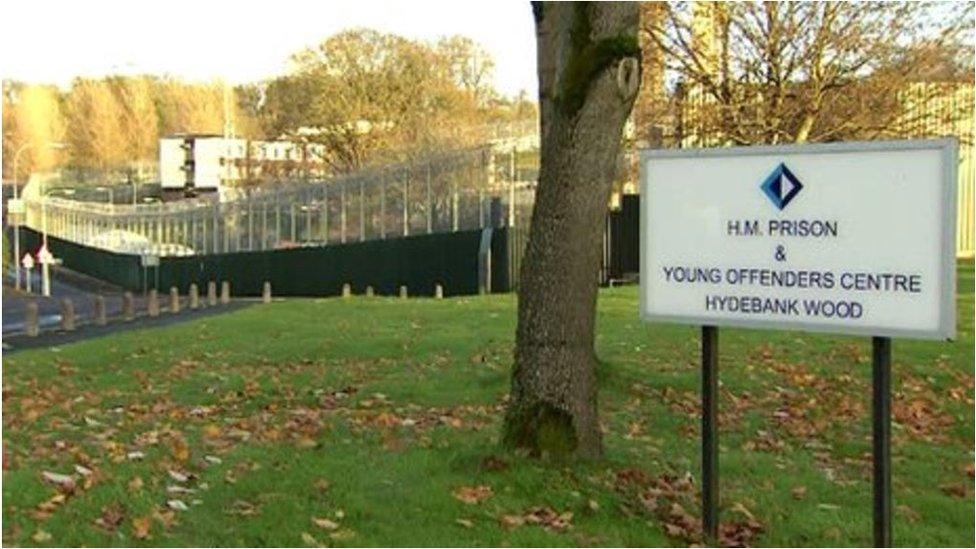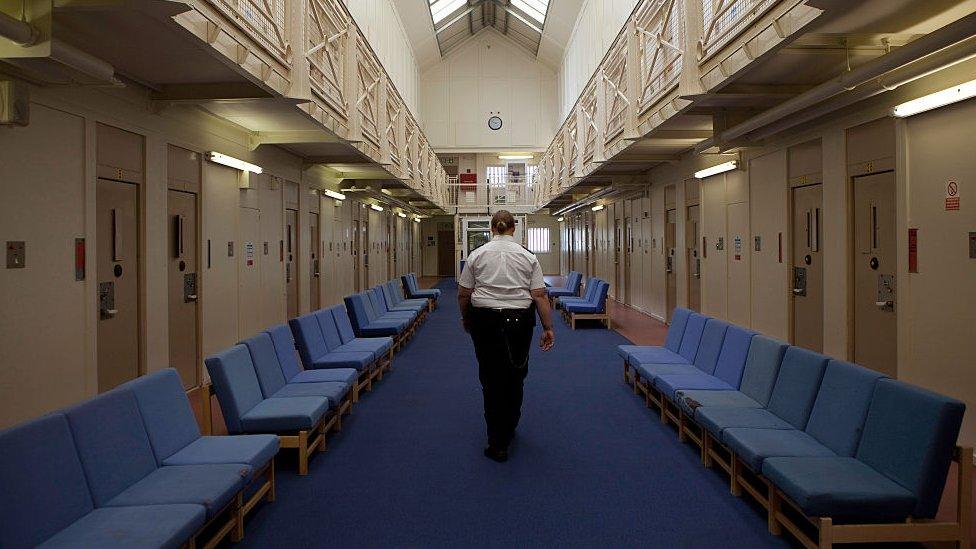'Need to improve' treatment of female offenders in NI, says report
- Published

Improvement is needed in the treatment of women and girls when suspected or convicted of an offence, the criminal justice inspector has said.
Jacqui Durkin said they were more likely to get short prison sentences, "but their impact can be far reaching".
The recommendation was made in a report on females in the justice system, external.
In 2019, women accounted for less than one fifth of court convictions but proportionately more were sent to prison for theft than men.
The inspector said while prison sentences may be shorter, that for a mother can be "life-changing" for her child.
Ms Durkin said the report found evidence of those working in the criminal justice system demonstrating "genuine understanding of the specific needs of females".
However with rising numbers of female offenders entering prison before the Covid-19 pandemic, she said it was "imperative" criminal justice organisations "do more" to develop and deliver female-focused interventions that meet their needs.

Jacqui Durkin said the report can not be another strategy that "just sits on the shelf"
"Gender awareness and responsiveness is not about applying a different standard to police actions, prosecution decisions or sentencing because the defendant is a woman or girl.
"Enforcing laws and bringing offenders to justice, as well as considering the impact of crime on victims, must prevail," she said.
As part of the inspection report, criminal justice inspectors spoke to women and girls.
"We learned criminal justice approaches could overlook specific vulnerabilities, the experiences that may contribute to a woman or girls' journey into offending behaviour and that non-custodial sentences could be challenging to complete, if issues like childcare needs were not taken into account," said Ms Durkin.
Justice Minister Naomi Long said the report would help the justice system build for the future.
"We know that the impact of women and girls coming into contact with the justice system and entering custody is significant," she added.
"It can have a long lasting 'ripple' effect not only on victims but on the women and girl's themselves, their families, future generations and society as a whole.
"The timeliness is significant as my officials are currently progressing work on a justice-wide strategy for women and girls in contact with the justice system."
Strategy 'can't sit on shelf'
Ms Durkin said that strategy offered "real opportunity to succeed where other strategies have not".
However, she warned "it can't be another strategy that just sits on the shelf".
"It requires effective leadership, commitment from each of the partner organisations and adequate resources to deliver outcomes for women and girls that make a difference.
"As part of this, we have recommended the operational recommendations included in this report should be actioned as part of the DoJ strategy and supporting action plan," she said.
Inspectors also made recommendations around children affected by a parent being prosecuted.
It was recommended that the DoJ, in partnership with the police prosecution, courts, prison, probation and youth justice services, should develop and deliver a framework to safeguard the best interests of children affected by parental involvement in the criminal justice system within the next nine months.
The inspector called for work to be carried out to develop expectations to guide how criminal justice organisations work with females in custody and in the community.
She recommended a network of "champions" should be created in organisations to focus on females generally and on specific groups of women and girls by summer 2022.
"Awareness of issues affecting women and girls are currently in the public eye like never before," she said.
"It is timely for our criminal justice organisations to consider some of the most challenging and vulnerable people in conflict with the law, their criminal justice system journey and the opportunities we have to provide better services and outcomes now and in the future," she added.
- Published9 June 2020

- Published23 July 2019

- Published27 October 2016

- Published23 January 2021
